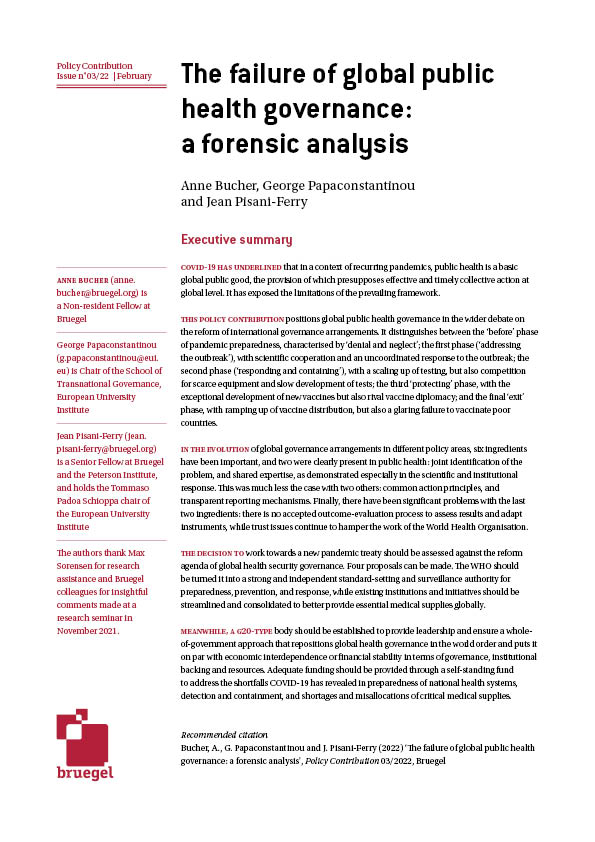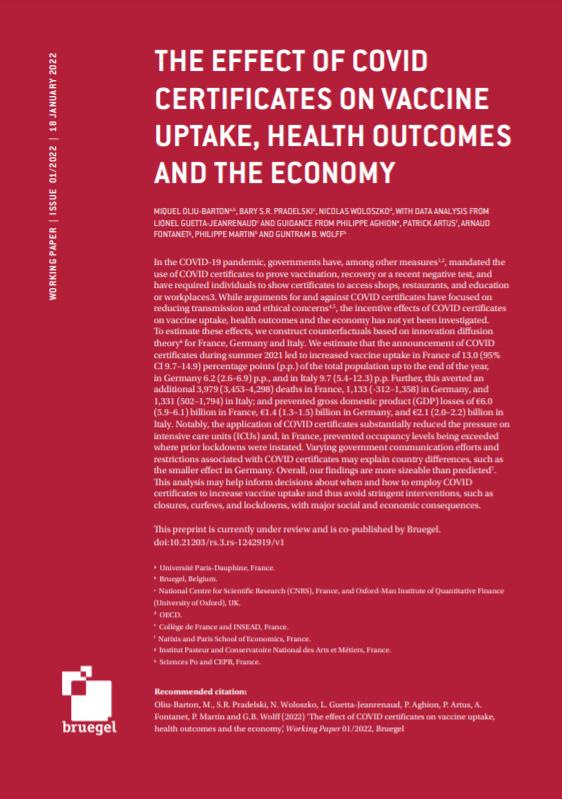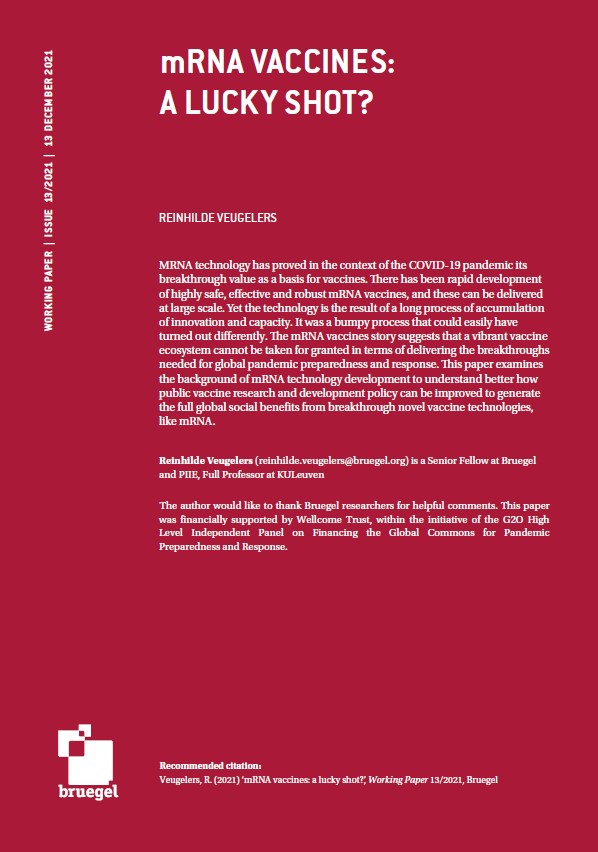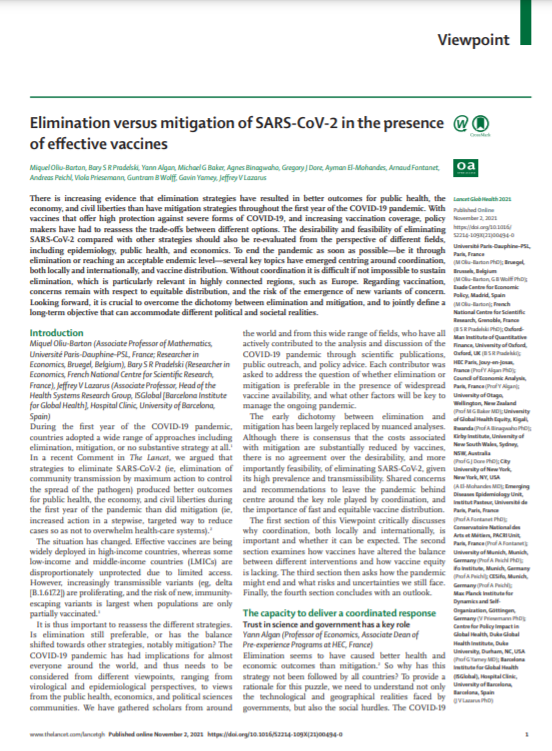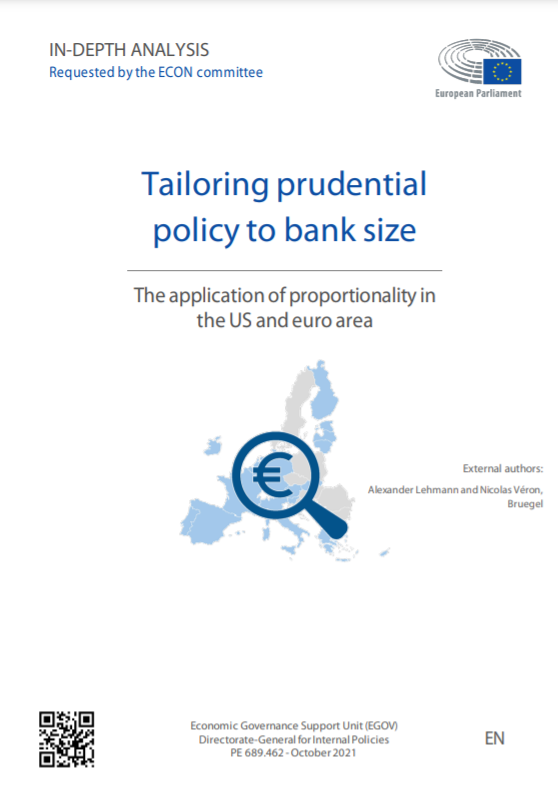Blog Post
The Economics of Healthcare
Healthcare reform has been a thorn in the side of the US administration for several months, prompting President Trump to declare that “Nobody knew that healthcare could be so complicated.” We review recent economists’ views on the issue.
Greg Mankiw argues that healthcare is so complicated because the magic of the free market sometimes fails us when it comes to this sector, for several reasons. First, externalities abound. When a new treatment is discovered, for example, that information enters society’s pool of medical knowledge, but without research subsidies or an effective patent system, too few resources will be devoted to research. Second, when people get sick, they often do not know what they need and sometimes are not in a position to make good decisions. The inability of health care consumers to monitor product quality leads to regulation. Third, healthcare spending can be unexpected and expensive. Health insurance solves this problem by pooling risks among the population, but it also increases the role of third-party payers, which reduces financial uncertainty but creates a fourth problem. Fourth, insured consumers tend to overconsume. To mitigate this problem, insurers have co-pays, deductibles and rules limiting access to services, but co-pays and deductibles reduce the ability of insurance to pool risk, and access rules can create conflicts between insurers and their customers. Fifth, insurance markets suffer from adverse selection, which can lead to a death spiral: if the healthiest people decide insurance is not worth the cost and drop out, both the cost for insurance companies and the price for sicker customers increase. The Affordable Care Act (ACA) tried to reduce adverse selection by requiring all Americans to buy health insurance or pay a penalty. This policy is controversial and has been a mixed success, but the existence of a federal law mandating that people buy something shows how unusual and complicated the market for health care is.
Surveys show that Americans, in general, support government-provided universal health care. Noah Smith argues that the average American understands what the market purists seem to ignore. Ken Arrow asserted that if economists care about human welfare, instead of just about overall economic efficiency, they should favor some form of government provision of health insurance. Without the government, we could easily end up with a system that uses resources efficiently but causes horrible human suffering, due to the prevalence of incomplete markets and uncertainty, which lead to adverse selection and moral hazard. One reason – which Mankiw does not mention – is the importance of moral norms. People have all kinds of moral considerations associated with health care; the health industry is full of things like doctor-patient trust and expectations of selfless morality, which operate outside normal market mechanisms. To Arrow, it would probably come as no surprise that other rich countries, all of which use some system of universal health care, end up paying much less for about the same quality of care that Americans receive. Widespread popular support for universal health care would also come as no surprise.
John Cochrane thinks that Greg Mankiw got it wrong and healthcare policy isn’t hard at all, at least as a matter of economics. Cochrane argues that externalities are everywhere but the logical connection from “free markets sometimes fail us” to “and therefore the Federal Government needs to take a heavy hand as it does for health care” deserves its own place in the pantheon of fallacies. Healthcare policy is hard, but that is because so few in the political and commentary class have any trust that markets actually can work. Allowed to do so, competitors will come in and provide better service at lower prices. People and the businesses that want to serve them will find a way to overcome econ 101 problems. What some economics education can do is to patiently remind people of these facts, rather than to give them excuses for endless mindless dirigisme.
Noah Smith argues that Cochrane’s piece displays in full form a particular style of argument that some conservative economists use to dismiss calls for government intervention in markets. Step 1 is either assert or assume that free markets work best in general; step 2 is list the reasons why this particular market might be unusual; step 3 is dismiss each reason with a combination of skeptical anecdotes, and/or informal evidence; step 4 is conclude that this market should be free from government intervention. Smith argues that Cochrane does not engage with the empirical literature on adverse selection in health insurance markets, which does present some evidence that adverse selection not only exists and creates costs in at least some health insurance markets, but is so severe that it can cause market breakdown of the classic Akerlofian type.
Arnold Kling at AskBlog states that the Cochrane-Mankiw dispute is a fair representation of where the profession stands on health care and he sides with Cochrane when he says that in terms of economics healthcare is not much different from other goods and services. Health care does not fit the model of perfect competition, but almost nothing does fit that model. Kling thinks that what makes health care different are cultural factors. There is nothing intrinsic to health care that makes it impossible for buyers to pay sellers directly, it is a cultural choice. Mankiw views health care regulation as a cost-benefit trade-off between “too much” (inefficient) or “too little” (consumers not protected). Kling argues that health care regulation should be viewed through a public choice lens as an example of Subsidize Demand, Restrict Supply. Mankiw discusses health insurance as if it were car insurance or fire insurance; Kling argues this is the wrong approach. With classic insurance, people rarely make claims, they make claims only for large, disastrous losses, and the premiums are low. What Americans think of as “good health insurance” is the opposite on all counts: it insulates people from having to make even small-dollar payments.
Republishing and referencing
Bruegel considers itself a public good and takes no institutional standpoint. Anyone is free to republish and/or quote this post without prior consent. Please provide a full reference, clearly stating Bruegel and the relevant author as the source, and include a prominent hyperlink to the original post.

